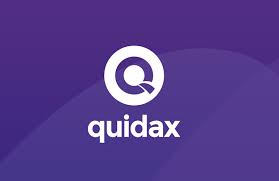Quidax, a Fintech company that enables Fintech players to provide cryptocurrency-related services to their customers, has unveiled one of Africa’s biggest music producer, Micheal Collins, popularly known as Don Jazzy, as its brand ambassador.
At the unveiling of its brand ambassador in Lagos this week, Quidax, an African-founded cryptocurrency exchange, said the choice for Don Jazzy, was based on his popularity in the music industry, and his simplicity that has attracted millions of followers to his social media handles.
Co-founder and Chief Executive Officer at Quidax, Mr. Buchi Okoro, said: “Don Jazzy has been such a great personality and is someone that I have looked up to for a long time. He has been able to build a record label when it seemed impossible. But the best part is that Don Jazzy is passionate about crypto and also owns crypto assets.”
Don Jazzy is the CEO and founder of Mavin records which can be said to be the powerhouse of music in Africa with artistes like Rema and Ayra Starr. Don Jazzy has more than 18 million followers across Instagram, Twitter, and Facebook.
Quidax, a crypto start-up had launched an online campaign last week with #TheQuidaxCall. The campaign which started on Tuesday, 15th March saw Quidax reveal celebrities like; Diane Russet and Bisola Aiyeola, both of whom are actresses and are former reality stars of Big Brother Naija. They also unveiled popular actor Timini Egbuson and celebrity Chef, Gbubemi Fregene aka Chef Fregz as well as award winning Jude Abaga better known as M.I Abaga.
In the videos announcing the celebrities, an unknown person was seen to be making the calls to the celebrities. At the event, Don Jazzy was revealed to be the person making the calls to these celebrities.
Okoro said Quidax had over the years, built solid infrastructure around its network to prevent online fraudsters from gaining unauthorised access to people’s savings. “Our infrastructure is built from scratch by reputable and skilled Nigerians, and we have placed various layers of security authentication around our network, in order to fortify it and to protect customers’ savings,” Okoro said.














































